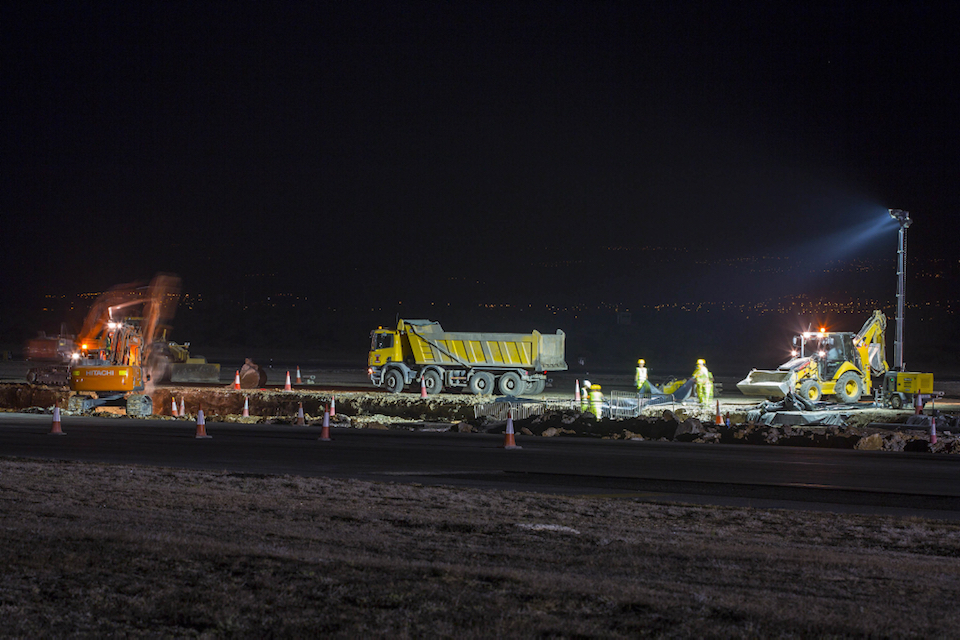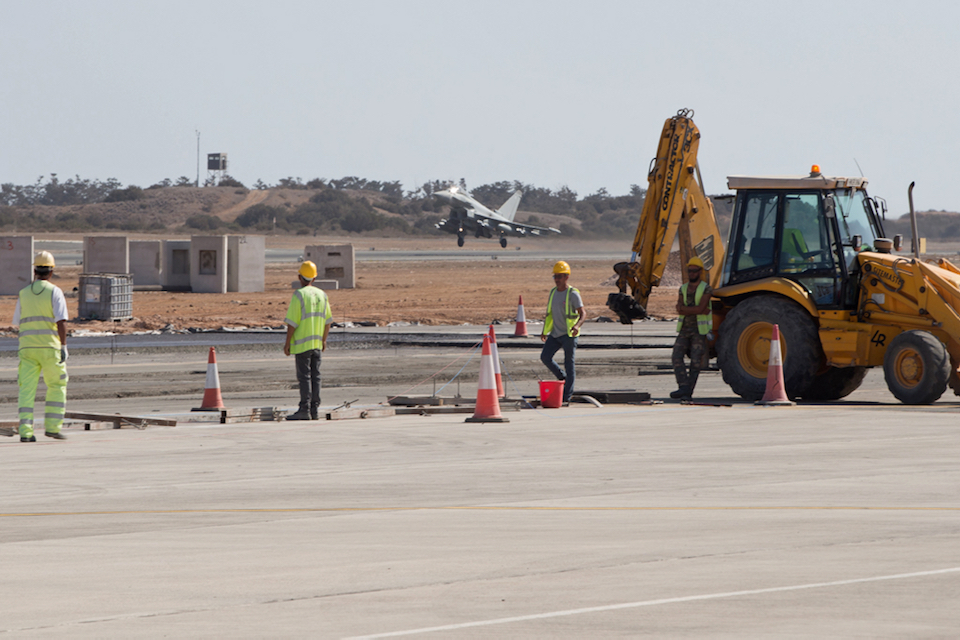The United Kingdom believes so firmly that preventing sexual violence in conflict is the right way to move forward. So in welcoming you, can I say that I am delighted to be welcomed by Madame Bangura who will co-host our session today and by Jineth Bedoya. And I am delighted to be joined by such a distinguished group of guests around the room today. All of you have played a key role in implementing and driving forward the initiative on Preventing Sexual Violence in Conflict.
May I first just give an indication of how the agenda will flow today. First of all, I will just set out the progress that the UK has made and where we hope that there will be plans developed for the future and working with colleagues around the world. I will then invite Madame Bangura to speak, and I will give a more formal introduction to her at that point. And then I will turn to Jineth Bedoya and invite her to speak. Again, I will give an introduction about her more formally at that stage. After that, the session is yours. It will be open to you for question and answer. Before you, you have as always the splendid United Nations system for interpretation and Jineth will be speaking in Spanish, so you will need to use the ear pieces on that occasion.
But for me this is a very special moment to be with you here today. Five years ago my colleague, and former Foreign Secretary, William Hague and the Special Envoy of the UN High Commissioner for Refugees, Angelina Jolie launched the Preventing Sexual Violence in Conflict Initiative.
As William Hague said then, PSVI reflects our conviction that “tackling sexual violence is central to conflict prevention and peace-building worldwide. It must be as prominent in foreign policy as it is in development policy, for the two cannot be separated. And also it cannot be separated from the wider issue of women’s rights.”
Now, those words remain as true today as they were then. In 2015 I had the great privilege of being able to take over the work from William Hague, when he resigned from his elected post in the House of Commons. The great thing is that he is still a colleague, because he became a member of the House of Lords so I am able to work alongside him still. And I was, at the stage in 2015, appointed as the Prime Ministers Special Representative on Preventing Sexual Violence in Conflict, and it is such an honour to be involved with such an important cause. And I am committed to driving it forward until and unless the whole international community is fully on board.
So, what is the UK is doing? Well back of course in 2012, when we launched the PSVI initiative, we committed to deploy a team of experts to conflict affected countries to help to gather evidence of crimes of sexual violence and support future prosecutions. But it was also the beginning of a diplomatic campaign to highlight the need for accountability and an end to impunity. Since then, it has grown into a global initiative supported by 157 countries and backed by practical action on the ground, and thats of course where it really does matter.
This was followed by G8 Foreign Ministers making an historic commitment less than a year later. And the commitment included a pledge that future peace agreements should not be amnesties for these crimes, they should not include any amnesties. And that pledge was shortly followed, in June 2013, by UN Security Council Resolution 2106. And 2106, stressed the responsibility of national governments themselves to take action.
We then took our campaign to the UN General Assembly in 2013, putting forward a Declaration of Commitment to End Sexual Violence in Conflict, and that was endorsed by more than two-thirds of all the members of the UN.
I am particularly proud of course, of the Global Summit to End Sexual Violence in Conflict, which we held in London in 2014. That involved not only governments, militaries and UN agencies but also survivors, civil societies and of course thousands of members of the public who came to show their support. And they continue to support. It was the largest international meeting ever convened on this issue, and it left an indelible impression on everyone who attended. In this development, the UK leadership was important but it could only be important because of the support of everybody else.
Over the last 5 years, working together, we have been able to secure the international political attention that the whole work in preventing sexual violence in conflict really does deserve.
Crucially, this political and democratic drive has enabled ground-breaking work to take place in those countries that are affected. The launch of the first edition of the International Protocol on the Documentation and Investigation of Sexual Violence in Conflict has seen countries as diverse as Bosnia and Herzegovina, Colombia, Democratic Republic of the Congo, Iraq, and Uganda use the protocol to bring perpetrators to account. And it has been my privilege to visit all those countries and see on the ground the practical work being done and using the protocol.
We have also seen our team of PSVI experts deployed more than 80 times to provide support and training on a range of issues from documenting crimes to rehabilitating survivors. Since the initiative was launched, the UK has provided over £35 million to fund more than 70 projects around the world. And of course, it is those projects that give access to justice and legal support to help to bring the perpetrators to account. They provide vital psychological, psychosocial and physical support to survivors and they challenge the stigma. They challenge the negative attitudes associated with sexual violence. We know that this support and assistance has had a real impact on survivors, their families and their communities. It is delivering real change on the ground. However we aren’t complacent and none of us ever could be. We know that, of course, a lot of progress has been made, but more importantly we know from you that much, much more needs to be done.
Our ambitious plans for the future reiterate the UK’s support and determination in tackling Sexual Violence in Conflict. We will continue to pursue justice for survivors, and I am delighted to inform you that just last week we launched the second edition of the International Protocol on the Documentation and Investigation of Sexual Violence in Conflict. The second edition has been updated in the light of the feedback we received on the first edition. In other words, we listened to you, we made the changes that you suggested.
This revised version contains a number of additions, including guidance on children and male victims; further guidance on trauma; and a focus on analysing evidence and establishing patterns of violations. So its with thanks and gratitude to over 200 contributors, many of whom are in this room today, who gave their knowledge and expertise to make this happen. The protocol will help many thousands of survivors seek the justice they rightly deserve. When I launched that updated version in London a couple of weeks ago, alongside William Hague and the Special Envoy Angelina Jolie, I had with me the very heavy, huge folder in hard copy which is not something that any practitioner would want to carry around. So, as you have seen today, we do have the modern version, we do have the memory stick which makes life a lot easier and there is one available for all attending today. And if you have missed out, let us know and you will have one. In addition to that, there is an interactive online version too and there are translations into 10 languages, all of which will be ready in early summer. We are working with international organisations and NGOs to ensure that they are trained in the protocol, and of course its use is integral to their work.
Last year, we gathered here just in the room next door, and I set out our plans for future action including those for our new campaign to tackle the stigma associated with sexual violence. I spoke about the ostracisation that survivors face, not just from their communities but from their families, from those who are closest to them. We know that every day survivors have to face their attackers in the street, in their communities, and in their cities and villages. The survivors though are the ones made to feel the shame and the blame. I find that appalling.
That’s why I have committed to tackling the stigma that so many survivors endure. Over the last year we have held workshops in many countries bringing together survivors, experts, and civil society, media and faith leaders to look at the root causes of stigma and how it affects each country differently. These workshops have been monumental in helping us to understand why survivors are shunned and blamed. Each and every affected country has different cultures, practices and social attitudes which then reinforce of course, the importance of bringing together our international community as we do today to join forces and tackle the stigma together.
Last November we had a major conference at Wilton Park, which brought together practitioners and survivors from sixteen conflict affected countries in additional to International NGOs, UN Agencies and academics to develop a set of Principles for Global Action to tackle the stigma associated with sexual violence. And this guiding document is designed to help policy makers from governments in donor countries, those in conflict affected countries and international organisations understand how they can incorporate tackling the stigma associated with SVC into their own work. To date, over 80 experts have contributed to the development of those guiding principles, and one is sitting next to me here today Jineth who attended the conference at Wilton Park. The assistance is to make sure that we have overarching and thematic recommendations, and those are now being commented on by over 20 donor countries. We have gone out to consultation.
Work is about to start on a second round of in-country workshops with stakeholders in conflict affected countries, International NGOs and donors about how we use the principles of this globally owned document to identify action which can already be taken forward in a number of conflict affected countries. So, later this year, when the General Assembly meets here in New York, I will officially launch the Principles for Global Action. That is when we all need to work together to ensure our efforts are collaborative and focused to maximise the impact and delivery on the ground which we can have.
And I am delighted to announce today, that in addition to that, looking forward the UK Government will host a follow up meeting to the Global Summit in 2019 in London. This international meeting will assess progress made against the 2014 Global Summit, encourage governments to live up to their commitments, and to galvanise further action. And I hope that we can count on your support as we start preparations for this event.
Because the real story here today, is about how the world works together. So, although we held a conference, although we have produced the principles for global action, these really are yours. It is your property, not the UK’s. It is for shared use around the world. Which is why for me today is so important. Not only to present the UK’s update, but to be able to hear from Madame Bangura and from Jineth and then from you about how we continue to work together.


